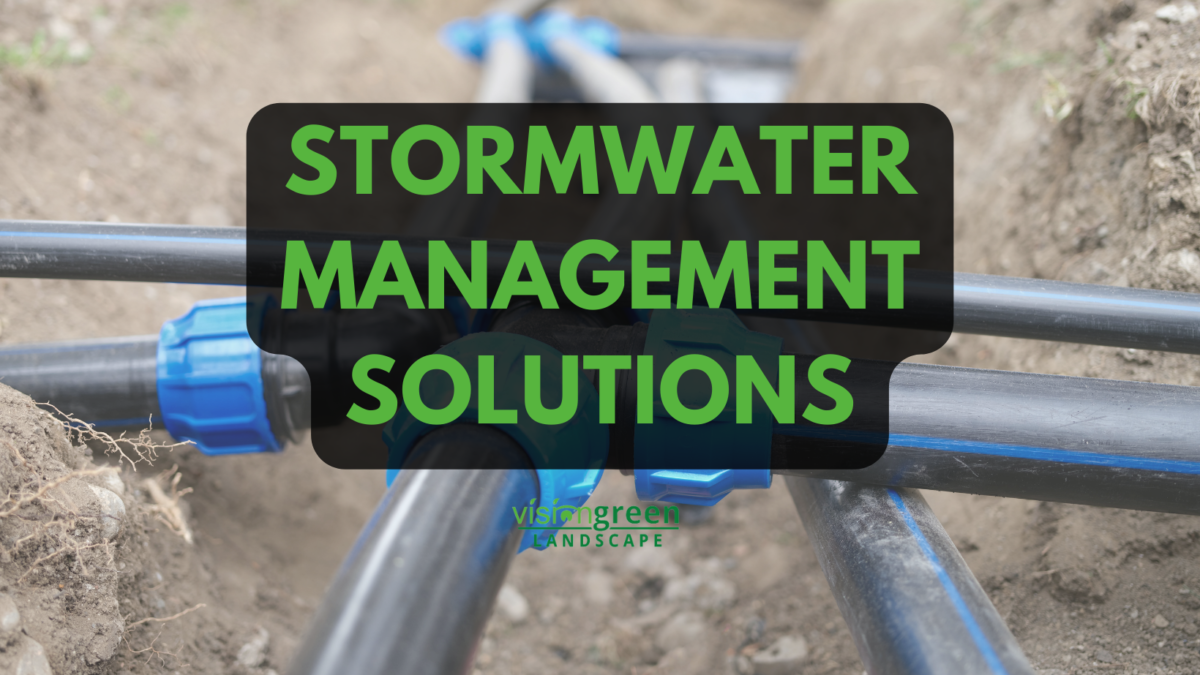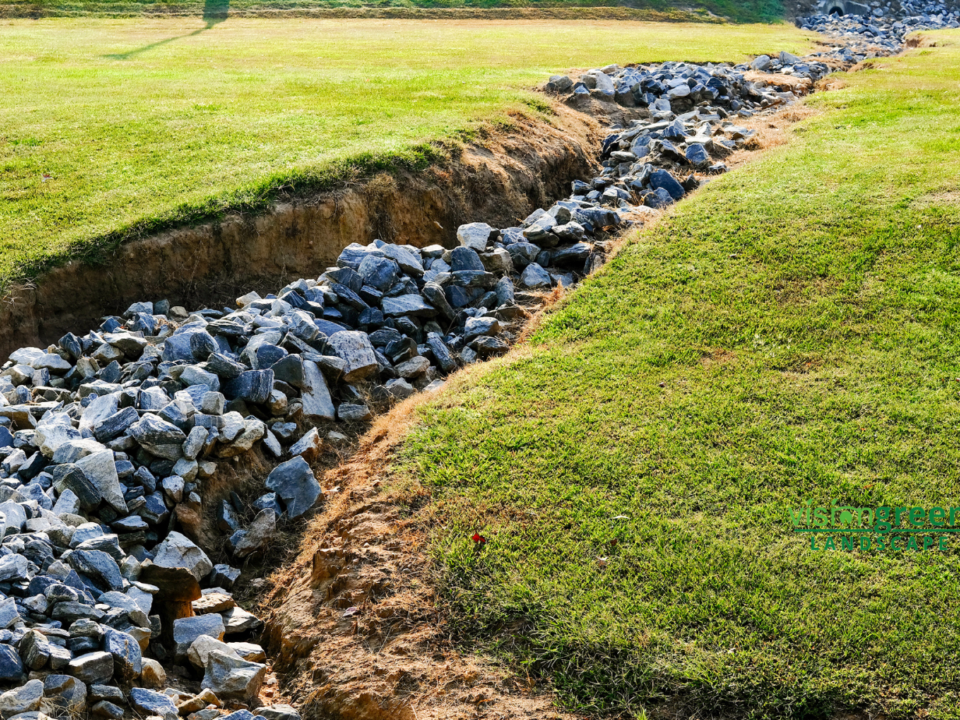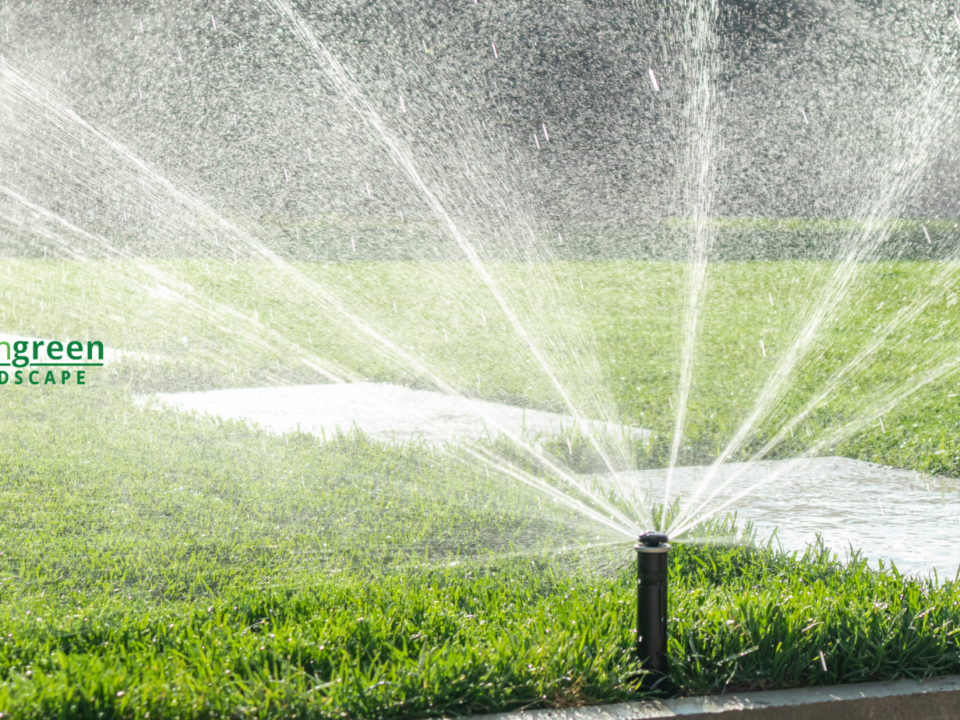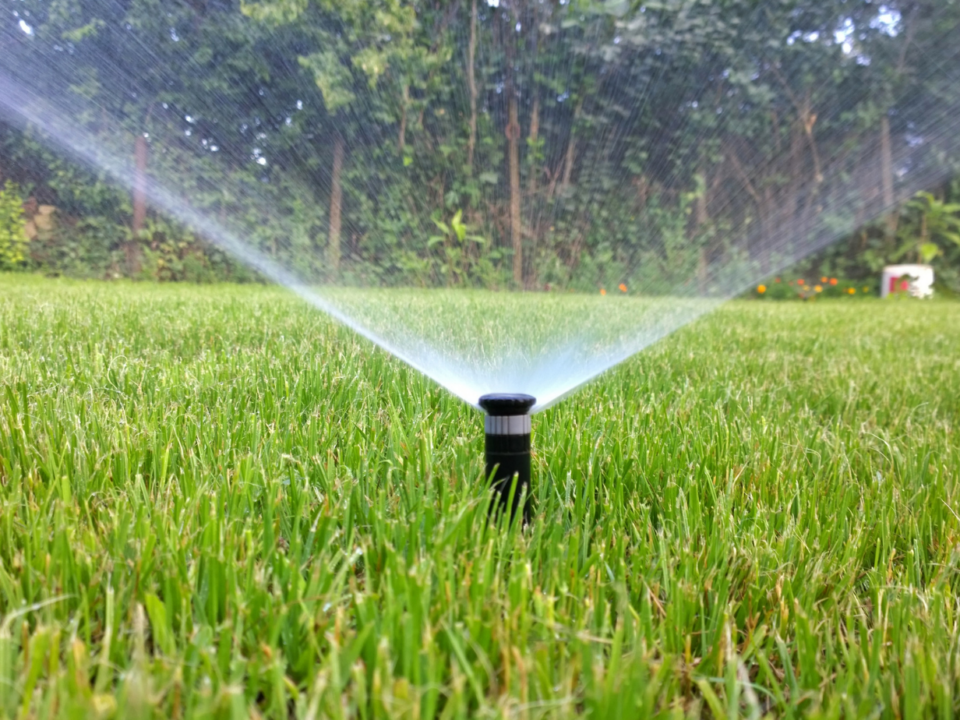Innovative Landscaping Techniques for Stormwater Management

What Homeowners Need To Know About Outdoor Fireplaces
November 3, 2023
Enhance Your Property with Stone and Brick
December 8, 2023Rain-Ready Landscaping
Stormwater runoff is a natural hydrological process where rainwater flows over the ground. However, it becomes a concern when urbanization replaces natural, permeable landscapes with impervious surfaces, leading to increased runoff. This excess water can overwhelm infrastructure, erode waterways, pollute ecosystems, and contribute to flooding. In North Carolina, where weather can be unpredictable and heavy rains frequent, managing this runoff is critical to protect our homes and environment.
Local Challenges and Regulations
North Carolina’s diverse topography and climate present unique challenges in managing stormwater. From the coastal plains to the Appalachian Mountains, each area requires tailored solutions. Local regulations often mandate stormwater management practices to mitigate development impacts on the natural water cycle.
At Vision Green Landscape, we advocate for sustainable landscaping to manage stormwater. This includes creating permeable surfaces to allow rain to infiltrate the soil, reducing runoff, and recharging groundwater.
Let’s explore the various methods to manage stormwater runoff for your home in Charlotte…
Utilizing Rain Gardens
Rain gardens are an attractive and effective way to handle runoff. They are shallow depressions that capture rainwater and allow it to soak into the ground. To create one, homeowners can:
- Choose a location at least 10 feet from the home.
- Dig a shallow depression with a flat bottom.
- Select native plants suited to wet and dry conditions.
Native North Carolinian plants like Joe-Pye weed and Cardinal flower are perfect for these installations.

Green Roofs and Living Walls
Urban homeowners can turn to green roofs and living walls. These living structures can absorb rainfall, provide insulation, and create habitats for wildlife. In dense neighborhoods, they’re a smart way to contribute to stormwater management.
Permeable Paving Options
Replacing non-porous surfaces with permeable paving allows water to filter through. Materials like porous concrete, permeable pavers, and decomposed granite are great choices for driveways, patios, and walkways in North Carolina homes.
Swales and Buffer Strips
Swales are shallow channels with gently sloping sides. They can be grassy or filled with stones and are designed to direct and filter runoff. Buffer strips are areas of vegetation near waterways that help filter pollutants. Both techniques are key in rural and suburban properties.
Dry Wells and French Drains
For properties with significant runoff, underground solutions like dry wells or French drains may be appropriate. These systems collect and redirect water, allowing it to percolate into the soil away from structures.

Using Native Plants
Utilizing native plants in your garden is not only beneficial to the environment but also an effective tactic for managing stormwater runoff. Here’s how they make a difference:
- Enhancing Ecosystems: Native plants are key to promoting local biodiversity, as they are part of the region’s natural habitat.
- Reducing Runoff: Their natural adaptation to the local environment means these plants are excellent at absorbing excess stormwater, preventing runoff.
- Conserving Water: Since they are accustomed to North Carolina’s weather patterns, native plants require less additional watering, saving water resources.
For instance, consider incorporating:
- Pink Muhly Grass: A grass native to North Carolina, it brings elegance and functionality to your garden by aiding in water absorption.
- Black-eyed Susan: Not only do these flowers add vibrant color, but they also play a role in soaking up stormwater, making them a practical choice for eco-friendly landscaping.
Maintenance and Upkeep
Maintaining these stormwater systems is vital. This includes regular cleaning of gutters, inspection of porous pavements for clogging, and the upkeep of plants in rain gardens.
Vision Green Landscape is dedicated to assisting North Carolina homeowners in adopting innovative stormwater management practices. Our solutions not only manage water effectively but also enhance the beauty and value of your property. Let’s work together to create sustainable landscapes for a greener future.
Need Professional Help?
Whether it’s through installing a new rain garden, upgrading to permeable paving, or simply maintaining existing systems, every step counts.
We at Vision Green Landscape are ready to bring our expertise to your doorstep. Let’s collaborate to design and implement a stormwater management plan tailored to the unique conditions of your property.
Don’t wait for the next downpour to determine if your landscape is prepared. Contact Vision Green Landscape today to schedule a consultation. 704.910.1941





